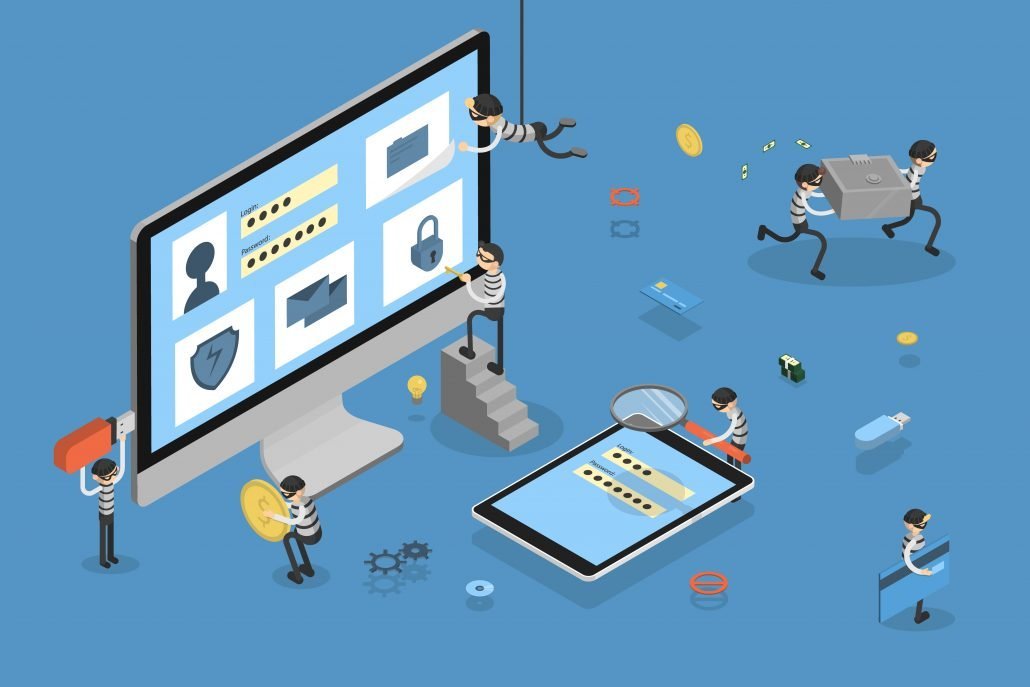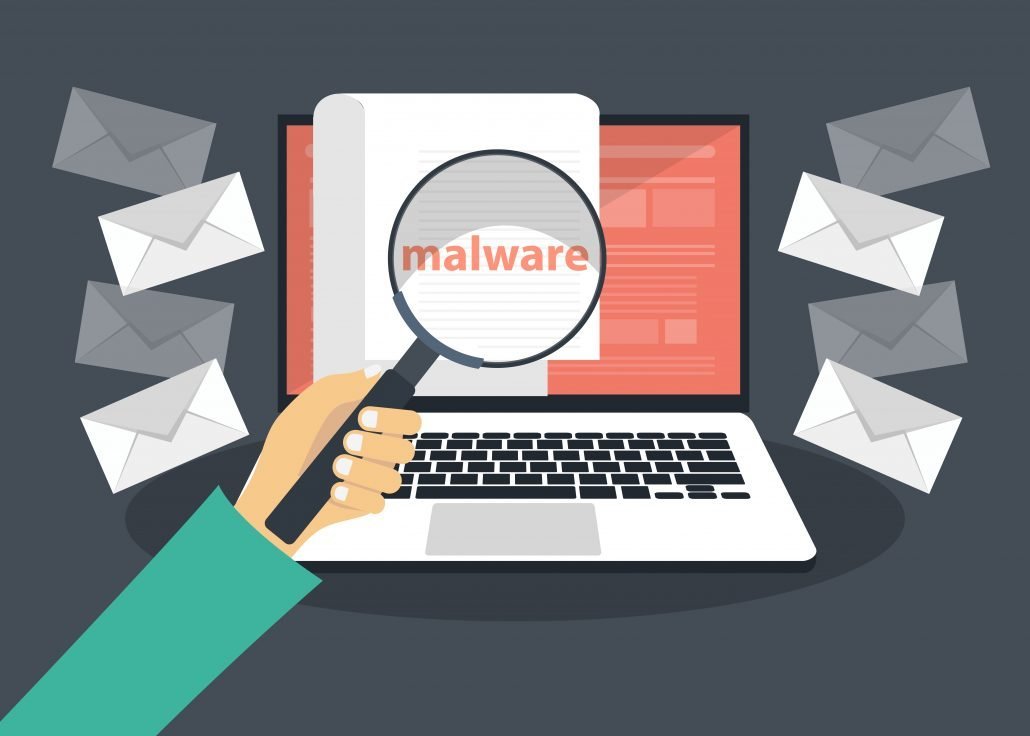How to Protect Your Small-Medium Business from Cyber Attacks & Data Breaches
There were over 1,400 data breaches in the United States in 2019, and over 160 million sensitive records were exposed. Those are big numbers, and you definitely don’t want it to happen to your company.
However, it can be challenging to know exactly how to protect your data as a small or medium-sized business. The truth is that hackers know this and often target smaller companies on purpose because they don’t expect you to prioritize your security.
How do you avoid making yourself a target? Make sure you’re taking these steps.

Thief stealing data from computer and hacking.
Don’t Be An Easy Target
The first step is to do the simple things to avoid being an easy target. Small companies are often targeted because they don’t have the personnel or knowledge to keep their security strong. Don’t be that company!
Start by creating a cybersecurity plan. This plan documents your policies, procedures, and steps you’ll take if there is a breach. With a plan, you can educate employees about how to respond to threats or phishing attacks, helping to avoid an unintentional compromise.
From there, make sure you update all of your software regularly. An old version or lack of current patches will alert hackers that you don’t pay attention to your technology, making you a prime target.
Finally, seek out updated and current software and technology. When you have old versions of software or use no-longer-supported solutions, you are much more likely to be targeted.
Go Beyond the Basics
Once you have the basics in place, it’s time to strengthen your defenses. You definitely need SSL security (which gives your website an HTTPS connection), but go further.
You’ll want to install a high-quality firewall to defend your network. This tool monitors incoming and outgoing traffic on your network and allows or blocks access depending on the security measures you choose.
You’ll also want excellent antivirus protection. Antivirus software helps protect your computer system from threats created by hackers that can steal data, passwords, and otherwise compromise your system. You must have up-to-date antivirus software because new threats are being created every day. Don’t overlook regular updates, either!
Thanks to the pandemic, 2020 saw most employees working from home. That trend is expected to continue in 2021 and beyond. That means there’s a whole new realm of security is required — endpoint security solutions that protect your company laptops from issues with home security networks.
When you have these protections in place, you’ll be safer from cyber attacks.

Educate Employees About Security Protocols
Your security systems are only as secure as your users, so educating your staff is essential. Make sure they understand all of the security measures in place and how to use them appropriately.
Password security is critical. Too many employees get frustrated with frequent password changes and make them insecure as a result. To avoid this, use a secure password storage program. These systems automatically generate secure passwords and store them, so your staff doesn’t have to remember or write them down.
Next, train your employees about how to avoid phishing attacks. These security breaches are common at companies because workers are moving quickly and don’t notice the signs of a scam. Help them understand what types of email your business will send them and what they won’t. Also, teach employees how to spot fake emails.
Finally, work-at-home employees need to understand how to create a secure home network. You can also train them to engage with and use endpoint security that protects cell phones and laptops.
When employees understand the ins and outs of your security processes, your organization will be much safer.
Use Strong Access Management and Email Security
Two common sources of security problems include unauthorized access to systems and hackers emailing spam or viruses. Shoring up these two areas will help your business stay safe.
If you have an IT department, work with them to install strong access controls so that only proper users can get into your systems. They can also help you set up email solutions, including anti-phishing software, spam filtering, and email certificates to ensure emails are coming from the proper users.
These steps will help back up your employees by providing fewer opportunities for them to make a mistake that allows unauthorized access.
Create Disaster Recovery and Backup Plans
Finally, it’s vital to know how to recover if your systems are compromised despite your best efforts. Start by doing consistent backups of data so that you can restore your customer and employee information quickly if something goes wrong.
Next, create plans for what to do if a disaster strikes. This should include not only a security breach but also power outages, data loss, viruses, and even fire or flooding at the office. For instance, you might have a cloud backup of everything your company needs to operate so that you can keep moving even if your physical location is compromised.
Finally, keep your software and hardware up-to-date. It’s challenging to take advantage of the other security measures if your company lags behind in technology.
Are You Safe From Cyber Attacks?
Many criminals target a smaller or mid-sized company because they think you’ll be less vigilant about your security. Don’t let that be true about you! With the steps we’ve outlined above, you can create strong security measures and protect yourself from attacks and breaches.
Interested in learning more? Contact us today!


